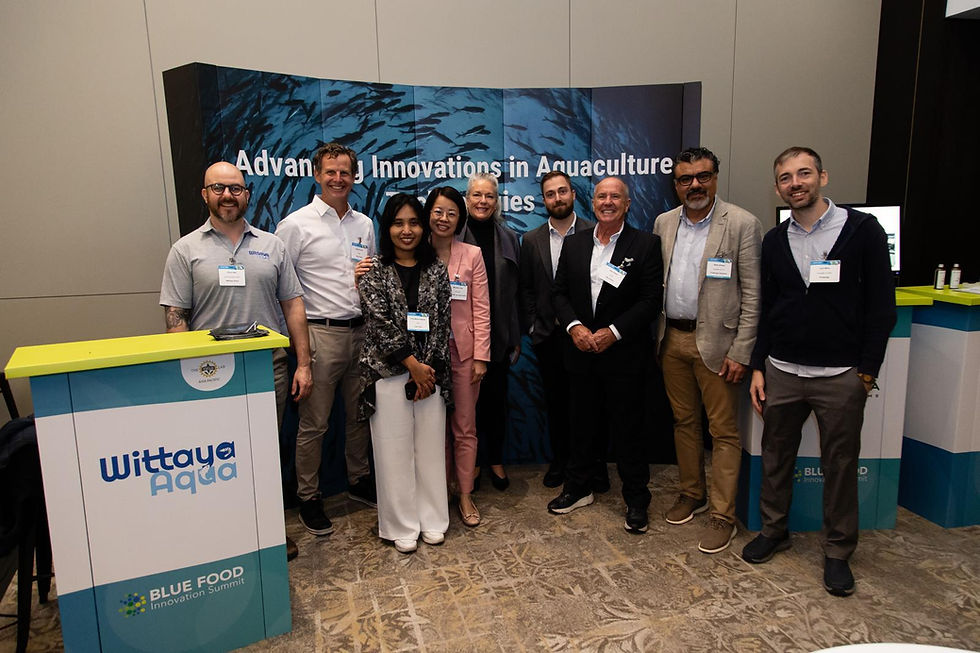Saving the Oceans with insects using Hermet Protein
- Protenga Admin

- May 25, 2023
- 1 min read
Updated: Jun 1, 2023
As demand for seafood continues to grow globally, the aquaculture industry faces a daunting challenge: How to sustainably feed billions of farmed fish while minimising impacts on the environment. One promising solution involves using insect-based protein as a replacement for marine-derived fish feed.
Traditionally, fish farmers have relied on fish meal made from small, wild-caught fish to feed farmed fish. Commercially, this wild-caught fish is processed into fish meal, one of the core protein ingredients in commercial fish feeds. But this approach contributes to overfishing and degrades marine ecosystems, making it unsustainable. Additionally, fish meal prices can be volatile, hence they are an unreliable and expensive feed source.
Protenga’s Hermet Protein can be used to feed farmed fish. Compared to traditional fish meal, using our insect protein has several advantages:
It has a lower environmental footprint: Farming the Black Soldier Fly require less land, water, compared to overfishing to obtain fish meal.
It's more sustainable: BSF can be raised on organic biomass materials, recycling nutrients otherwise lost.
It's more cost-effective: Insect protein will be a more stable feed source than fish meal, grown in controlled environments to also control production and hence prices.
Replacing fish meal with Hermet Protein has the potential to make fish farming more sustainable and profitable, while also reducing pressure on already-stressed marine ecosystems. With the global population projected to reach 10 billion by 2050, innovative solutions like using Hermet Protein will be essential to feeding the world's growing appetite for seafood.
To learn more about Hermet Protein, please contact us at [email protected].



Comments